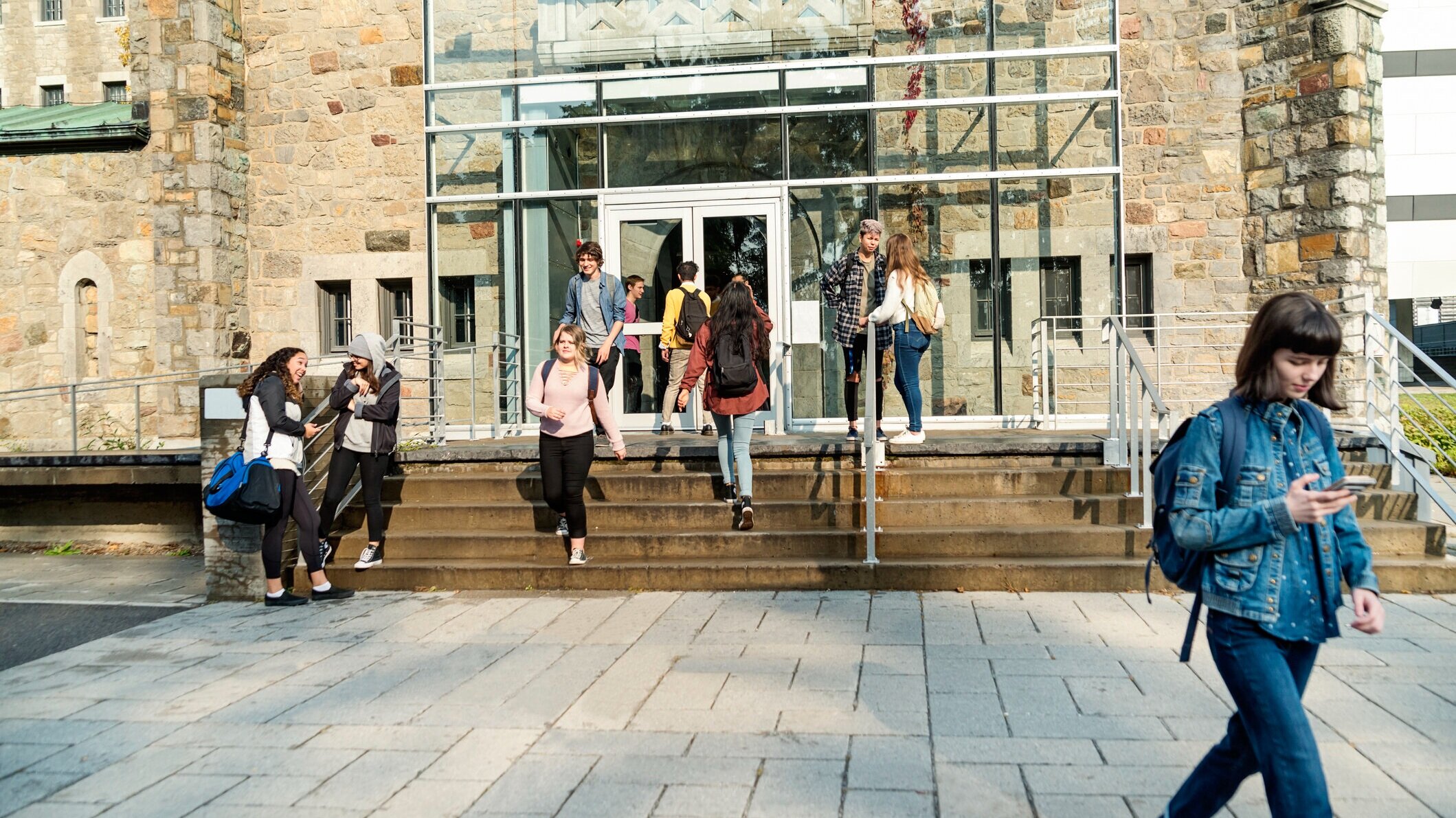Leadership in lockdown - an interview with Professor Donna Whitehead, Deputy Vice-Chancellor London Metropolitan University
Perspectives on leadership in Academia with Professor Donna Whitehead, Deputy Vice-Chancellor London Metropolitan University
In this series of interviews with prominent leaders in Academia our colleague Owen Francis discusses various aspects of leadership in these current times.
Watch the interview
Below follows a transcript of our interview
How have you navigated the last year both institutionally and personally?
It has been the most challenging year to be in higher education for leadership and indeed at all levels. Staff and I are trying to balance even more things than ever before. Personally, I am trying to juggle home schooling for my children with work and there is a constant feeling of guilt. Am I giving enough to work? Am I giving enough to family?
We have staff with caring responsibilities – we have staff and students that isn’t designed to work from. We have staff with high anxiety and there is lots of uncertainty about the future. For me I don’t personally enjoy living and working from the same space; I am extrovert by nature so I get my energy from other people, and you can only get so much of that energy through online meetings.
It is also a difficult time to make decisions because of their impact on staff or students who may be really struggling – for example our mature students who may be juggling their course, a job and have caring responsibilities. Its not a one size fits all model.
As a sector we have talked a lot about inclusive leadership – how do you do this in such challenging circumstances?
I many ways it has helped to really tailor leadership styles to the institution and the people within it that we are serving. Hearing more from staff and students than ever before. Running regular feedback sessions for both – open for a where they can give their thoughts, challenges, their feelings has helped across the sector to be more inclusive. We are in listening mode.
However, if you think about the equity agenda, as something that we should be driving throughout the institution then I do feel that it has suffered sector wide simply because we are having to be so reactive and have been for the past year. When we first had to go to remote working – everything got pushed to one side. We have made huge leaps forward in how resilient we are and how creative we can be in the most difficult circumstances, but I do wonder what progress we will have made across the sector towards true inclusion; progress for stonewall or race equity for example. I do think it’s a mixed picture.
Do you think the digital platform for meetings allows perhaps for more voices ad cognitive diversity to come through?
At London Met we are absolutely committed to implementing an education for social justice framework. Like many institutions across the sector, we have a significant degree awarding gap between white students and students of colour, and affluent versus poorer students. Rather than approaching that with a deficit model and putting in place lots of additional support for those groups – we have said we want to change as an institution – our curriculum, our processes, systems and representation. Before the pandemic we had a plan to roll out that framework and whilst we are still absolutely wedded to that, it has had to be delayed because of the pressure on staff it would place to make the necessary changes. We slowed it down to do it properly, so it doesn’t represent a change of direction but is a pragmatic solution that the pandemic has created.
To return to the question – we are hearing more voices at all levels within the organisation Our governors aren’t just talking to the senior leadership team, they are talking to staff across the institution and that may be as a result if the pandemic but in fact makes for good governance.; seeing whether the strategy is alive at all levels of the university. That said, research shows that women tend to take more of the caring responsibilities so are they along with other underrepresented groups getting the time to get their voices heard? Its great we are hearing more voices, but we don’t want to hear more just from already well represented groups.
Your role as Deputy Vice Chancellor is normally quite a visible one. How has working remotely and not being quite so visible changed the dynamics of your role?
Before lockdown I spent time walking the corridors, bumping into and chatting with people. I am in a lot more meetings, I probably have more than ever – but it is those casual, ad hoc meetings, in a queue, over a cup of tea that have vanished. I think we underestimate how much business is done in those informal meetings. It can be important to simply ask how someone’s kids are or ask what they’re up to at the weekend. Going to a person’s office to congratulate them on a paper or results or some other achievement is far more impactful than sending an email. I really miss that face-to-face contact with people – I cant wait to get back to bumping into people and hearing about the reality of their situations outside of a formal agenda update.
Have you learned anything about your own leadership style as a result of the pandemic?
I think I’ve learned about the difficulties around keeping everyone up to date with what is happening. If people miss a meeting, they can quite quickly feel out of the loop whereas in ‘normal’ times they would quite quickly pick things up from each other in the corridors. So I ve learned a lot about the importance of communication, the direction of travel and the testing of ideas. Personally, I’m not sure I am any more resilient but I have certainly devoted more time to shoring up my own resilience and making space for self-care and the children.
I’ve also had the privilege for having more insight into other peoples lives through these Zoom calls – where and how they are working, their homes, other people in the background. This goes back to understanding the communities that we are serving and it certainly made it clearer about the impact our decisions make on the reality of people;s lives. The emotional intelligence part of leadership, checking in with people, saying thank you – I’ve been reminded of how important this is and that it is a useful way of spending some time.
What advice would you give those stepping up to leadership level within the education sector?
I do lots of mentoring and I am also mentored, and I have constant discussions on how we can enable each other to be more effective, enabling of others and creating opportunities. I think the sector is absolutely desperate for empathetic leaders with different experiences. People who come into higher education aren’t in it for the money or for career progression – the do it because they are passionate about changing lives. That is very much a hearts and minds ‘thing’ than a KPI ‘thing’. People should only come into senior leadership roles in this sector if they are genuinely caring and understand the communities they serve – staff and students. I think historically the sector has valued KPIs reached, research written, and partnerships formed, but we will see more emphasis going forward on authentic and inclusive, values-based leadership. I would urge candidates to think about their experience in caring and supporting their peers, colleagues, and students and to really build on that.
I think that people who have worked in the background, often unheard and under-valued, have made a massive difference during the pandemic and it isnow their time to step forward. London Met is certainly interested in hiring those sorts of people. I know there is a move across the sector to make sure we have equity in those systems, processes and policies, so for those people out there who looked at the people above them as something other or different – now is your time to go for it – because you are what the sector is screaming out for. This is my plea – to all you people with different lived experience – this sector doesn’t need more of the ’same’ - it needs you!
If you want to continue these dialogues, have experiences to share or if you are curious to learn more about Alumni, we would love for you to get in touch!
Director of Higher Education and Non-Profit Practice
E-mail




